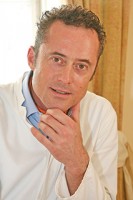There are several chronic diseases or attritions of the body, e.g., osteoarthritis, which can be treated with autologous stem cells from body fat (Adipose-Derived Stem Cells, ADSC). For this purpose, a small procedure under local anesthesia for extraction of a portion of fat from the patient is required. The stem cells are injected after isolation from the harvested adipose tissue in a gentle way. If the patient is mobile and in a good general condition, the therapy can be carried out as an outpatient treatment at very low risk in a specialized clinic, given that the doctor performing the treatment has the appropriate expertise.
But if the patient is very old, seriously ill, or severely debilitated, instead of a therapy with autologous stem cells a treatment with appropriate donor stem cells from young healthy donors (allogeneic stem cell transplantation) can be performed. The use of donor stem cells spares affected patients the surgery necessary to harvest the fat tissue, which may represent an additional burden in case of a poor general condition. Additionally, the patient could get younger stem cells with a higher healing potential.
Incidentally, allergies or rejections are unknown for such therapies. Donor stem cells are well-tolerated. Nevertheless therapies with donor stem cells are currently prohibited in Europe, although donated cells have proven of value in medicine. Just think of blood donation, plasma donation, organ donation, and bone marrow transplants – patients seeking for cure must travel abroad for stem cell therapies with donor stem cells.
That’s not very patient-friendly, but the pharmaceutical industry is looking forward to new patents…
DDr. Heinrich, MD
